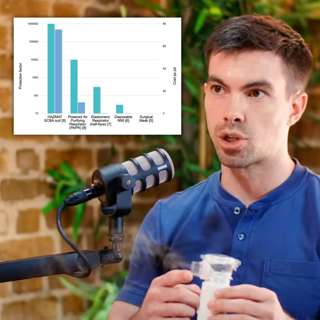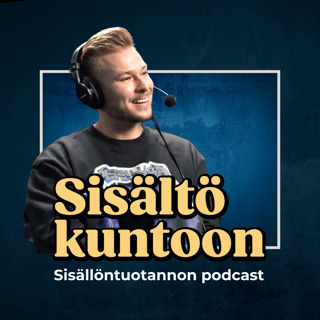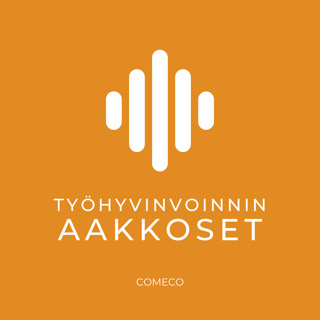Premium
9,99 €/kk
- Kaikki premium-podcastit
- Ei mainoksia
- Ei sitoutumista, peruuta koska tahansa


Conventional wisdom is that safeguarding humanity from the worst biological risks — microbes optimised to kill as many as possible — is difficult bordering on impossible, making bioweapons humanity’s single greatest vulnerability. Andrew Snyder-Beattie thinks conventional wisdom could be wrong.
Andrew’s job at Open Philanthropy is to spend hundreds of millions of dollars to protect as much of humanity as possible in the worst-case scenarios — those with fatality rates near 100% and the collapse of technological civilisation a live possibility.
Video, full transcript, and links to learn more: https://80k.info/asb
As Andrew lays out, there are several ways this could happen, including:
Most efforts to combat these extreme biorisks have focused on either prevention or new high-tech countermeasures. But prevention may well fail, and high-tech approaches can’t scale to protect billions when, with no sane people willing to leave their home, we’re just weeks from economic collapse.
So Andrew and his biosecurity research team at Open Philanthropy have been seeking an alternative approach. They’re proposing a four-stage plan using simple technology that could save most people, and is cheap enough it can be prepared without government support. Andrew is hiring for a range of roles to make it happen — from manufacturing and logistics experts to global health specialists to policymakers and other ambitious entrepreneurs — as well as programme associates to join Open Philanthropy’s biosecurity team (apply by October 20!).
Fundamentally, organisms so small have no way to penetrate physical barriers or shield themselves from UV, heat, or chemical poisons. We now know how to make highly effective ‘elastomeric’ face masks that cost $10, can sit in storage for 20 years, and can be used for six months straight without changing the filter. Any rich country could trivially stockpile enough to cover all essential workers.
People can’t wear masks 24/7, but fortunately propylene glycol — already found in vapes and smoke machines — is astonishingly good at killing microbes in the air. And, being a common chemical input, industry already produces enough of the stuff to cover every indoor space we need at all times.
Add to this the wastewater monitoring and metagenomic sequencing that will detect the most dangerous pathogens before they have a chance to wreak havoc, and we might just buy ourselves enough time to develop the cure we’ll need to come out alive.
Has everyone been wrong, and biology is actually defence dominant rather than offence dominant? Is this plan crazy — or so crazy it just might work?
That’s what host Rob Wiblin and Andrew Snyder-Beattie explore in this in-depth conversation.
What did you think of the episode? https://forms.gle/66Hw5spgnV3eVWXa6
Chapters:
This episode was recorded on August 12, 2025
Video editing: Simon Monsour and Luke Monsour
Audio engineering: Milo McGuire, Simon Monsour, and Dominic Armstrong
Music: CORBIT
Camera operator: Jake Morris
Coordination, transcriptions, and web: Katy Moore
Nauti 14 päivää ilmaiseksi
Kuuntele kaikki suosikkipodcastisi ja -äänikirjasi yhdessä paikassa.
Podme-sovelluksessa kokoat suosikkisi helposti omaan kirjastoosi. Saat meiltä myös kuuntelusuosituksia!
Voit jatkaa siitä mihin jäit, myös offline-tilassa.



9,99 €/kk
13,99 €/kk
Kuuntele kaikki suosikkipodcastisi ja -äänikirjasi



















